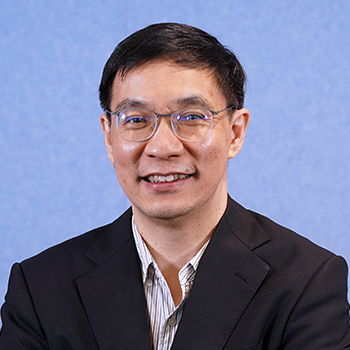Democracy provides the best method of dealing with conflicts that humans have ever come up with, and the electoral process is an important component of it.
Hence, the widely accepted definition of democracy treats free and fair elections as a key component.
The sentence “voting is a political right of all citizens, no one can violate it” is an important one in the statement of the “Two Yes, Two No” network to which I belong.
In the statement, there is another important sentence: “We should make the electoral process a peaceful solution to the conflict.”
In my understanding, this sentence reflects the view that elections are a means of dealing with conflict.
But though this method is indeed important and meaningful, it is not the end in itself.
The sentence implies that if the election does not help resolve conflict peace-fully and in fact intensifies the conflict with a risk it may spiral towards violence,we should consider whether the election can be postponed to reduce political confrontations or not.
This can be done through various means such as by starting a reform process.
Election and reform are topics that members of the “Two Yes, Two No” network, comprising academics and civil society groups, do not fully agree upon in detail.
We share a common platform to uphold democratic principles and means,to oppose coups and violence, to respect the people’s right to vote, and to reform through democratic means.
One side places emphasis on the need for a general election on Feb 2.
They say that postponing the election would open up space for unlawful intervention, destroy democratic rules, and possibly expose society to violence since many people have expressed a desire to defend their right to vote, as exemplified by the rapidly growing “Respect My Vote”campaign.
The other side, including me, think that proceeding with the election on Feb 2 regardless of the consequences is also likely to create problems.
In my opinion, an election boycotted by the Democrat Party and the anti-government movement would neither help lessen conflict, nor bring politics out of the deadlock.
As such, Thai politics may witness violence and deaths as recently seen in Bangladesh.
One could say the Democrat Party’s boycott is part of the problem, but I think that blaming sides will not solve the deadlock.
I believe many Thais would like an election with the participation of diverse parties, including the Democrats, and with an outcome that is accepted. In such a scenario, an election is truly a solution to the conflict.
A message agreed by everyone in the “Two Yes, Two No” network is that we “respect the people’s constitutional right to vote” though a date is not specified. If the constitution allows the election date to be moved, then it should be moved though we should not move the election just because one side tries to block it.
I personally believe we should postpone the election, but with the following conditions:
1) The new election date must be agreed upon by the different parties to return them to the electoral process;
2) The election must not be postponed for too long, say no more than four to five months;
3) The election can only be postponed once;
4) Meanwhile, the government should cooperate with different sides and start reforming to solve the heart of this conflict (such as by establishing a mechanism to keep state power checked to ensure the minority do not have their freedom and space unjustly taken from them).
I believe if a reliable promise for reform is made, there is a high chance the situation could be restored to normal.
I do not expect everyone in the “Two Yes, Two No” network to agree with me on moving the election date, but I will continue to respect them and would gladly discuss the issue with anyone in a friendly manner.
I believe holding a dialogue without rushing to judgement can help prevent conflict and create mutual understanding, even when disagreement persists.
If academics and civil groups with presumably little to gain from the conflict cannot engage in a dialogue, how can one expect those involved in a political conflict, whose interests are enormously linked to that conflict, to negotiate a way out for Thailand?
I hope all sides will realise that regardless of the outcome, we have to live together in Thailand without being able to eliminate those who think differently.When people acknowledge this, we can seek the best solution for Thailand together.
____________________________
Somkiat Tangkitvanich, PhD, is president of the Thailand Development Research Institute (TDRI)
First published: Bangkok Post, January 15, 2014


